|
A semi-implicit discrete-continuum coupling method for porous media based on the effective stress principle at finite strain
Kun Wang, WaiChing Sun A finite strain multiscale hydro-mechanical model is established via an extended Hill-Mandel condition for two-phase porous media. By assuming that the effective stress principle holds at unit cell scale, we established a micro-to-macro transition that links the micromechanical responses at grain scale to the macroscopic effective stress responses, while modeling the fluid phase only at the macroscopic continuum level. We propose a dual-scale semi-implicit scheme, which treats macroscopic responses implicitly and microscopic responses explicitly. The dual-scale model is shown to have good convergence rate, and is stable and robust. By inferring effective stress measure and poro-plasticity parameters, such as porosity, Biot’s coefficient and Biot’s modulus from RVE, the multiscale model is able to predict effective poro-elasto-plastic responses without introducing additional phenomenological laws. The performance of the proposed framework is demonstrated via a collection of representative numerical examples. Fabric tensors of the representative elementary volumes are computed and analyzed via the anisotropic critical state theory when strain localization occurs.
0 Comments
Micropolar effect on the cataclastic flow and brittle-ductile transition in high porosity rocks
A micro-mechanical DEM model is adopted to analyze the grain-scale mechanism that leads to the brittle-ductile transition in cohesive-frictional materials. The cohesive-frictional materials are idealized as a particulate assemblies of circular disks. While the frictional sliding of disks is sensitive to the normal compressive stress exerted on contacts, normal force can be both caused by interpenetration and long-range cohesive bonding between two particles. Our numerical simulations indicate that the proposed DEM models is able to replicate the gradual shift of porosity change from dilation to compaction, and failure pattern from localized failures to cataclastic flowupon rising confining pressure in 2D biaxial tests. More importantly, the micropolar effect is examined by tracking couple stress and micro-crack initiation to interpret the transition mechanism. Numerical results indicate that the first invariant of the couple stress remains small for specimen sheared under low confining pressure but increases rapidly when subjected to higher confining pressure. The micropolar responses inferred from DEM simulations reveal that micro-cracking may occur in a more diffuse and stable manner when the macroscopic couple stress are of higher magnitudes. |
Group NewsNews about Computational Poromechanics lab at Columbia University. Categories
All
Archives
July 2023
|

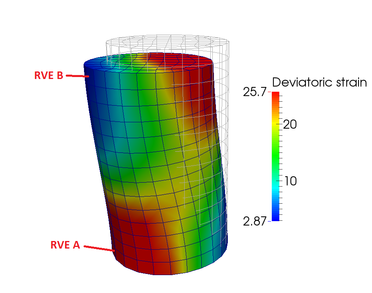
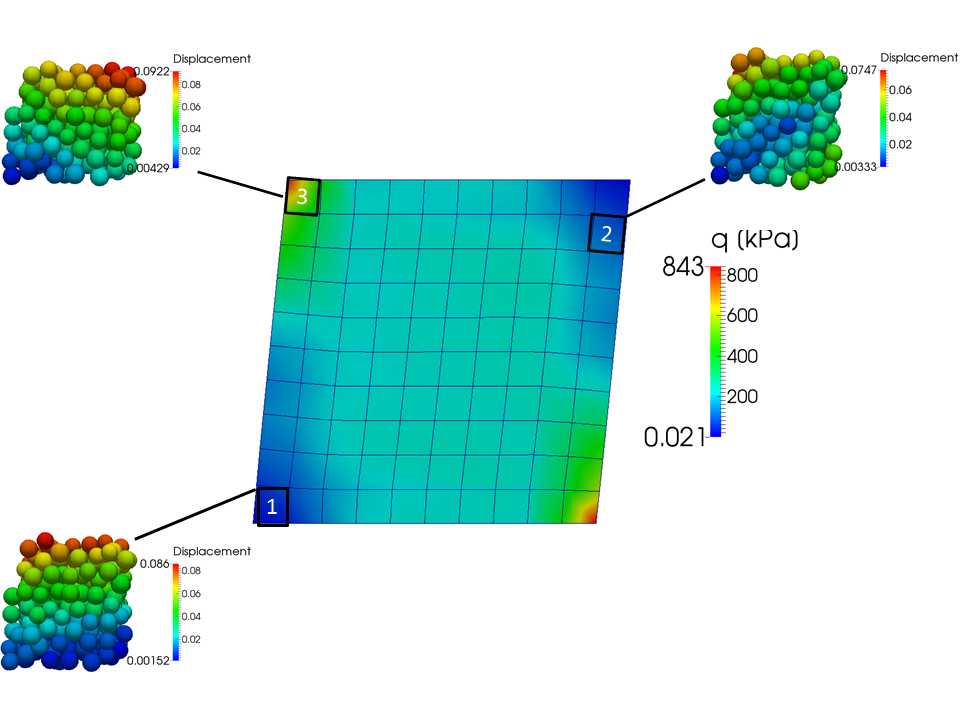
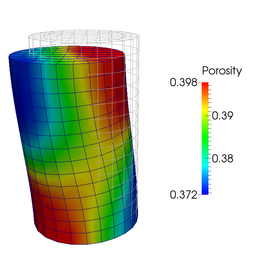
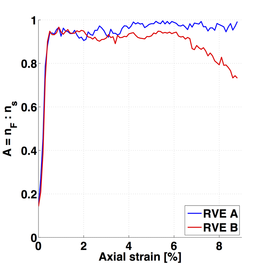
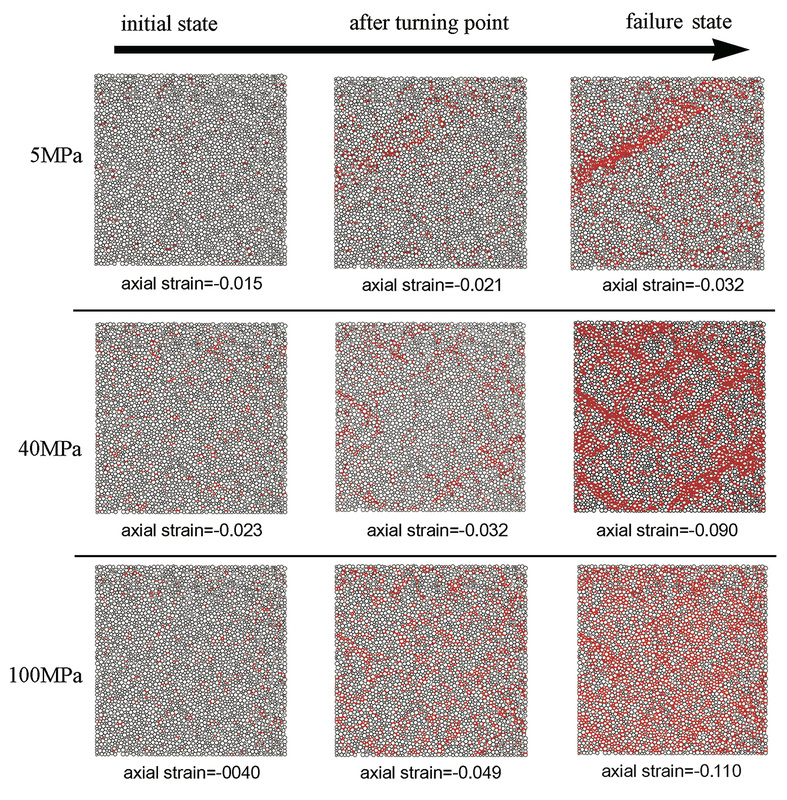
 RSS Feed
RSS Feed